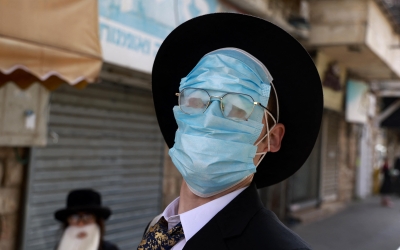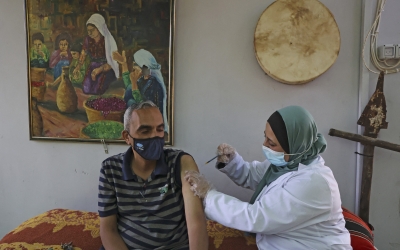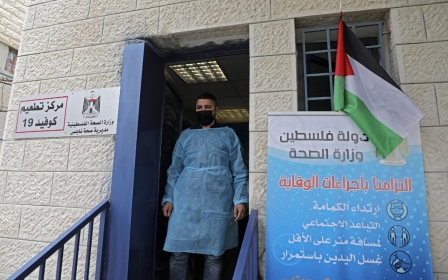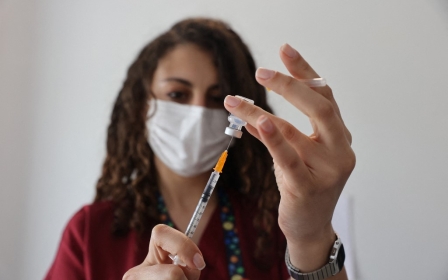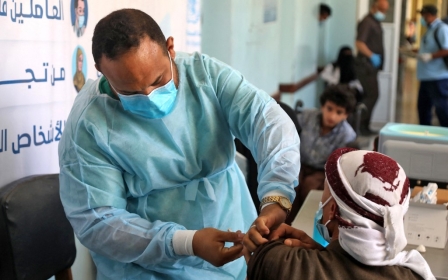Covid-19: Pfizer vaccine efficacy declines by one third in Israel, says health ministry
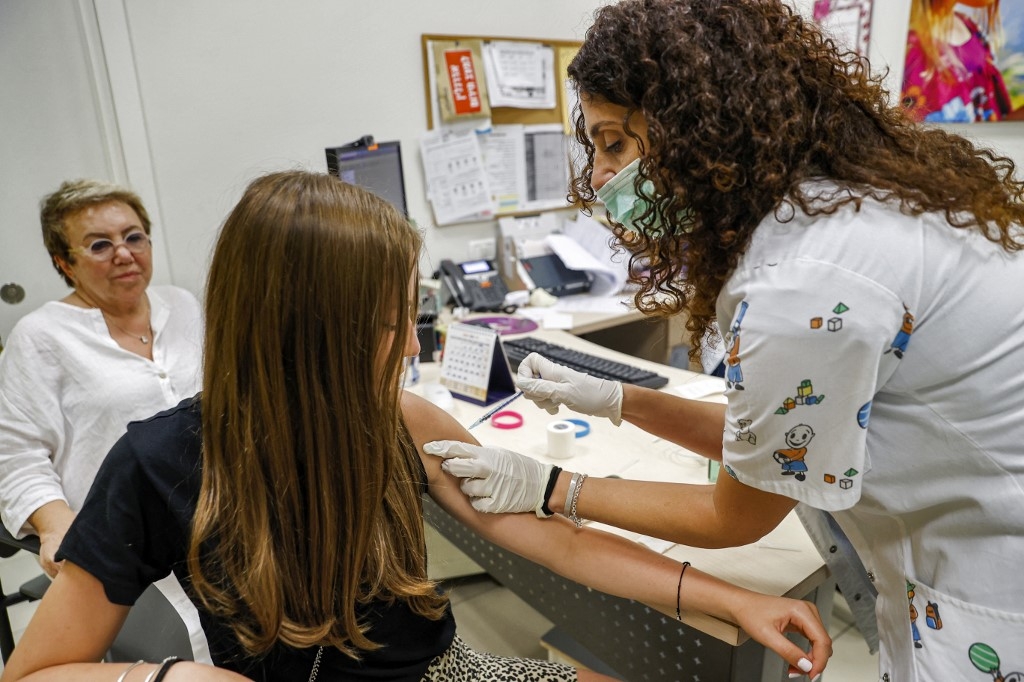
The efficacy of one of the world's leading Covid-19 vaccines has declined by nearly a third in Israel due to the spread of the Delta variant, the country's health ministry has said.
Ran Balicer, chairman of Israel's national expert panel on the coronavirus, said the Pfizer-BioNTech vaccine had a 64 percent protection rate from early June until early July - a significant decrease from the 94 percent efficacy researchers had documented a month earlier.
New MEE newsletter: Jerusalem Dispatch
Sign up to get the latest insights and analysis on Israel-Palestine, alongside Turkey Unpacked and other MEE newsletters
The findings come as Israel reverses some Covid-19 restrictions that had been lifted out of concern for the uptick in Delta variant cases.
The health ministry said on Monday that the Pfizer vaccine continued to provide strong protection against severe symptoms of the virus, with people avoiding hospitalisations by a rate of 93 percent from 6 June to 3 July, compared to a 98 percent rate in the previous period.
Nevertheless, Balicer warned that the rise in cases offers a "preliminary signal" that the vaccine may be less effective at preventing mild symptoms from the Delta variant.
Delta, Israel's 'dominant strain'
While it remains "too early to precisely assess vaccine effectiveness against the variant", Balicer told AFP that "some decrease in vaccine effectiveness against mild illness - but not severe illness - is likely".
Later on Twitter, Balicer underlined the difficulty in compiling data about the Delta variant from local outbreaks, describing the work as "very population-segment-specific, complex, & sensitive to significant bias".
The Covid-19 Delta variant was first identified in India in October and has since spread to nearly 100 countries worldwide. It is more than twice as contagious as the original Covid-19 virus and has forced a number of governments, including the UK, to delay or rethink lifting pandemic restrictions.
The Delta variant's emergence as the "dominant strain" in Israel has led to a "massive shift in the transmission dynamic", said Balicer.
On Monday, Israel reported the highest rate of new infections in three months, with the ministry recording 343 new cases over the past 24 hours. After a peak of over 10,000 new cases in one day in January, new daily cases had fallen to the single digits in June.
In the past fortnight 90 percent of new cases in Israel have been caused by the Delta variant, AFP reported. About half of new cases have been detected in fully vaccinated patients, and about half in children, with a handful of returning travellers testing positive.
'It is encouraging'
Experts "remain hopeful that the vaccine effectiveness against serious illness will remain as high as it was for the Alpha strain", Balicer said.
The number of fully vaccinated Israelis experiencing severe symptoms after contracting the virus had increased from roughly one every other day up to five per day, Balicer estimated while also noting a lack of fatalities.
"It is encouraging that we still maintain zero deaths for the last twelve days," he said.
After recently reimposing an indoor mask rule for public spaces, Prime Minister Naftali Bennett was scheduled to meet Health Minister Nitzan Horowitz on Monday to discuss the latest outbreak and whether to advise a third booster shot for certain demographics.
Israel may also consider limiting the size of permitted gatherings and reintroducing the “Green Pass” system that limited access to certain spaces to vaccinated people, Bennett said on Sunday.
Pfizer CEO Albert Bourla has said people will "likely" need a third dose of a Covid-19 vaccine within 12 months of getting fully vaccinated.
A Pfizer spokesperson declined to comment on the data from Israel but told Bloomberg that other research suggested the vaccine provided ongoing protection against new mutations. Available evidence suggests the vaccine "will continue to protect against these variants", she said.
Israel originally lifted mask requirements on 15 June, reinstating them two weeks later.
Some 5.2 million people have received both doses of the Pfizer-BioNTech vaccine in Israel.
But Israel, which has vaccinated some 85 percent of its adult population, has faced criticism for not sharing its vaccines with the 4.5 million Palestinians in the occupied West Bank and the Gaza Strip. Under international law, occupying powers are responsible for the health care of the population they control.
Middle East Eye delivers independent and unrivalled coverage and analysis of the Middle East, North Africa and beyond. To learn more about republishing this content and the associated fees, please fill out this form. More about MEE can be found here.


